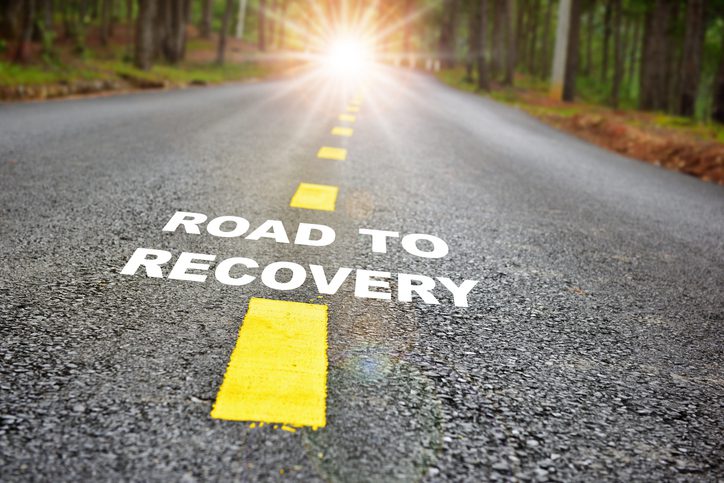While detox is an essential component of the recovery process, it’s not a substitute for comprehensive residential addiction treatment. Let’s take a look at why detox alone falls short of providing the necessary support for long-term sobriety and how residential addiction treatment at Waypoint Recovery Center can help you build the foundation for a sustainable recovery.
What Happens During Detox?
Drug and alcohol detoxification, often referred to as substance abuse detox, is a specialized process that helps individuals safely remove drugs or alcohol from their system while managing the associated withdrawal symptoms. Detox protocols vary depending on the substance, the person’s specific needs, and the treatment setting. However, here is a general overview of what to expect:
- Assessment. Detox typically begins with a comprehensive assessment by a medical professional to determine the person’s substance use history, overall health, and if there are any co-occurring medical or psychiatric conditions that might complicate the process.
- Medical monitoring. Medical supervision is crucial, especially for people at risk of severe withdrawal symptoms, such as those who are addicted to alcohol or opioids.
- Withdrawal management. Medical professionals may use medications to manage these withdrawal symptoms, reduce discomfort, and prevent complications. For example:
- Opioid detox. Medications like methadone, buprenorphine, or naltrexone may be used to ease withdrawal symptoms and reduce cravings when a person is detoxing from opioid abuse.
- Alcohol detox. Medications like benzodiazepines (e.g., diazepam or chlordiazepoxide) are sometimes prescribed to manage alcohol withdrawal symptoms.
- Psychological support. Counselors and addiction treatment professionals are available 24/7 to provide support, education, and coping strategies to help the person going through detox manage stress, anxiety, and cravings.
- Nutritional support. Often, people struggling with addiction have poor nutrition. Detox programs frequently include dietary plans and nutritional supplements to address these deficiencies and ensure adequate hydration.
The Limitations of Detox
Detox typically lasts a few days to a couple of weeks, depending on the substance or substances being abused and the severity of the person’s addiction. While detox rids the body of harmful substances, it is not a substitute for residential addiction treatment. Here are some of the limitations of detox:
- Detox doesn’t address the psychological and emotional factors that contribute to addiction. Trauma, stress, and mental health concerns are common in people with substance use disorders. Detox alone does not provide the tools and therapies needed to address these underlying issues.
- Detox doesn’t teach a person how to manage cravings and triggers. After detox, people may still experience intense cravings and be exposed to triggers that can lead to relapse. Detox does not equip them with the coping skills to manage these challenges effectively.
- Detox doesn’t support lasting behavioral changes. Substance use disorders are often associated with destructive patterns of behavior. Detox does not offer the intensive therapy and counseling needed to modify these behaviors.
- Detox doesn’t include a plan for relapse prevention. Substance use disorders are considered chronic illnesses with a high risk of relapse. Detox does not provide the necessary education, strategies, and support to help a person reduce their risk of relapse in the long term.
What Are the Benefits of a Residential Substance Abuse Treatment Program?
Residential addiction treatment, also known as inpatient rehab, offers a structured and supportive environment for people who are beginning their recovery journey. At Waypoint Recovery Center, we provide:
- Individualized treatment. No two people with substance use disorders are exactly alike, and effective care must be personalized to meet individual needs. Our programs are customized to address issues such as chronic pain, past trauma, and co-occurring mental health disorders to ensure that each client receives the care they need to move forward with their recovery.
- Comprehensive therapy. Our South Carolina drug and alcohol addiction treatment center provides access to a wide range of therapies, including individual counseling, group therapy, family therapy, and specialized treatments for co-occurring mental health disorders. These therapies delve into the root causes of addiction and help individuals develop healthier coping mechanisms.
- Peer support. Our residential facility allows clients to connect with others who are on the same journey to recovery. Peer support can be invaluable for motivation and building a sober support network.
- A holistic approach. Our holistic approach to treatment stresses the importance of physical, emotional, and spiritual well-being to support a lasting recovery.
- Aftercare planning. Our residential program provides assistance with aftercare planning, helping clients transition back into their communities while maintaining their sobriety. This may include outpatient treatment, support groups, and continued therapy.
Recovery is possible, and you deserve the support and resources necessary to achieve it. While detox is a crucial first step in the journey to recovery, it is not a substitute for residential addiction treatment. Contact us today to learn how our services can help you move toward a healthier and happier future.





